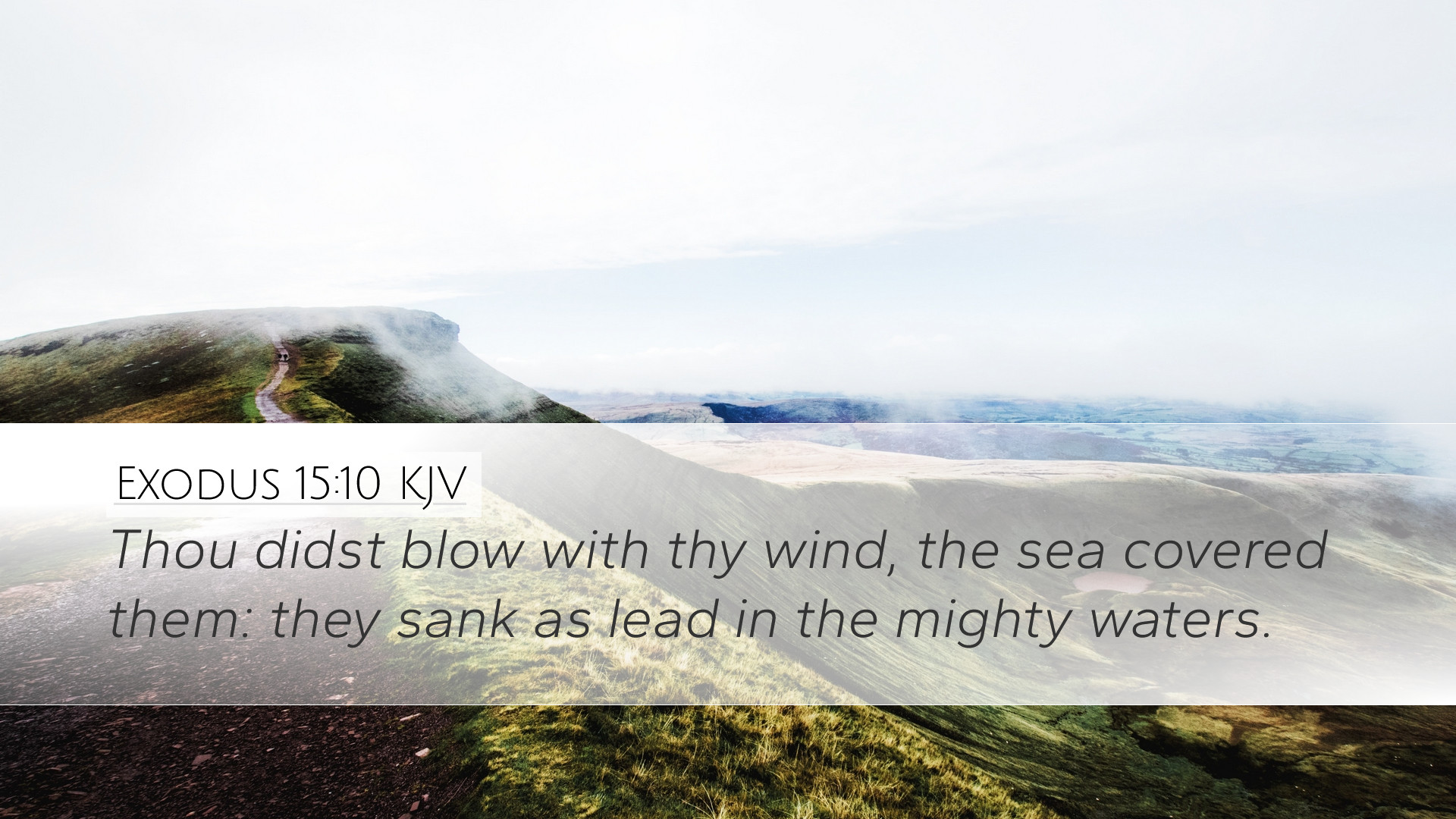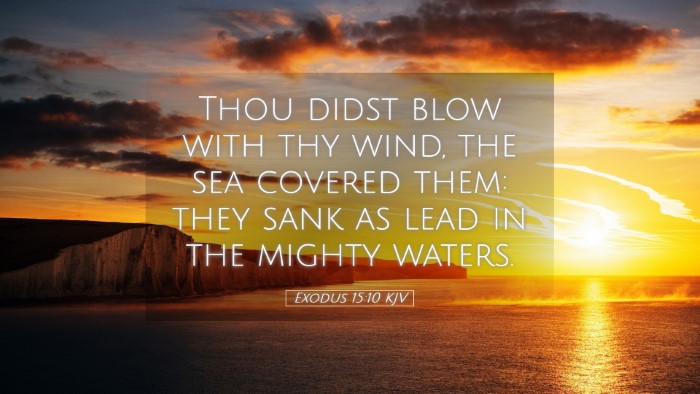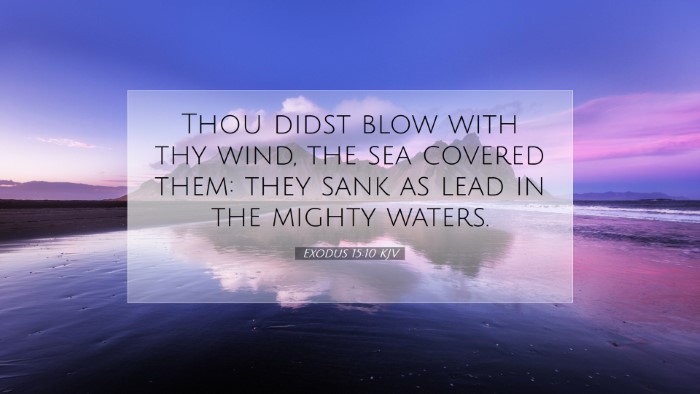Exodus 15:10 - A Commentary
In Exodus 15:10, we encounter a profound declaration as the Israelites celebrate their deliverance from Egyptian bondage through the waters of the Red Sea. The verse states:
"Thou didst blow with thy wind, the sea covered them: they sank as lead in the mighty waters."
Context and Setting
This verse comes at a pivotal moment in the narrative following the Israelites' miraculous escape from Pharaoh's army. After years of oppression, they finally witness God's unparalleled power. The verse encapsulates the defeat of their enemies and serves as a foundation for worship in their newfound freedom.
Interpretation from Commentaries
Matthew Henry's Commentary
Matthew Henry emphasizes the might of God revealed in this moment. He observes that God's 'wind' symbolizes not just a natural phenomenon but carries spiritual significance, illustrating His capacity to command creation at will. The imagery of the sea engulfing Pharaoh's forces reflects the complete and utter defeat of those who opposed God’s people.
- Henry notes the following key themes:
- Divine Sovereignty: God's control over nature and history is highlighted, demonstrating that He can bring about justice as He sees fit.
- Judgment: The sinking of the Egyptian army serves as a judgment upon oppressors, affirming the principle that God defends His chosen.
- Deliverance: This moment marks a spiritual and physical deliverance, establishing a foundation for worship and trust in God’s promises.
Albert Barnes' Commentary
Albert Barnes offers an analytical view of the verse, focusing on the use of 'wind' as a display of God’s omnipotence. He elucidates the technicalities of the event, indicating that the "wind" could refer to a natural force, yet suggests it serves a deeper theological implication as representative of God’s breath, bringing judgment and salvation.
- Key insights from Barnes include:
- Theological Significance: The events convey God's direct intervention in the natural order, suggesting His power extends beyond human limitation.
- Symbol of Oppression: The Israelites' enemies sinking like lead encapsulates the weight of their sin and hostility against God’s will, underscoring a critical aspect of divine justice.
- Encouragement for Believers: The result of God’s intervention provides believers today with assurance of God’s ability to overcome earthly challenges.
Adam Clarke's Commentary
Adam Clarke focuses on the immediate emotional and spiritual aftermath of this event. He reflects on the celebration by the Israelites, emphasizing the imperative of remembrance. The description of their sinking serves as a stark reminder of God's deliverance and the doom of rebellion against His designs.
- Clarke adds these reflections:
- Historical Context: Understanding this event in the light of Israel’s history reinforces the importance of gratitude and authenticity in worship.
- A Call to Worship: Clarke’s commentary encourages a response of worship, inspired by the testimony of God’s saving grace—and the necessity to recount these stories for future generations.
- The Nature of God: In observing God’s actions, Clarke emphasizes His mercy intertwined with justice, asserting that the character of God is both loving and righteous.
Theological Implications
This verse speaks powerfully about the nature of God and His relationship with humanity. The drowning of Pharaoh's army is not merely a historical event, but serves as a paradigm for understanding God’s redemptive history across Scripture.
- Justice and Mercy: The dual themes of divine justice against oppression and mercy towards the oppressed pervade biblical theology, illustrating God’s unfolding covenant with His people.
- Worshipfulness: The response of the Israelites is a model for worship that springs from experiencing God’s salvation. Today, this calls believers to reflect deeply on their own deliverance and live lives of gratitude and praise.
- Hope in Adversity: For contemporary readers, Exodus 15:10 encourages hope and perseverance, affirming that God can and will intervene in dire circumstances—reminding the faithful of His promises.
- Historical Reminders: The importance of recounting God’s faithfulness throughout history serves to fortify the faith of future generations, encouraging the Church to hold fast to stories of God's past interventions in their lives.
Conclusion
Ultimately, Exodus 15:10 stands as a resonance of God’s character—His power, His judgment, and His protective love for His people. Through the lens of commentaries from Matthew Henry, Albert Barnes, and Adam Clarke, this verse invites deeper reflection on the transformative power of divine deliverance and challenges its readers to respond in worship and obedience.


